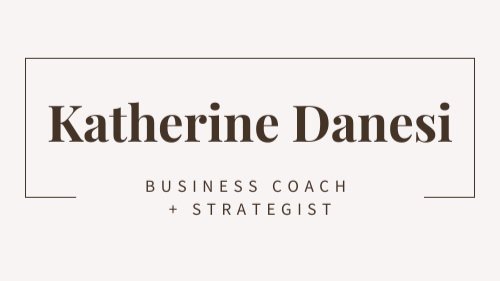How to value your services
The topic of pricing for profitability comes up a lot with the founders of service-based businesses I work with.
How do you value what you do?
How do you stop trading time for money?
And confidently set prices you can stand behind”
_____
One of my weekly podcast go-to's is Pulling the Thread with Elise Loehnen.
Elise Loehnen leans toward more esoteric and spiritual topics, so it’s not for everyone. But she is incredibly smart and well-read, and a great interviewer.
Since leaving her role as head of content at goop a few years ago, she’s been running her own business, full-time — ghostwriting others’ books, podcasting and writing a Substack newsletter, and publishing her first book.
Last week she released a solo podcast episode, “Five Things I’m Thinking About: The Creative Process, Pricing Your Work, Inspiration vs. Discernment, Insanity, and the Etymology of Should.”
Her discussion of the second topic, pricing your work as a creative — which in my mind means any founder of a service-based business — was thoughtful and on point.
I’m sharing it in hopes that it helps you think about your work, your output, your value, and your pricing, through a different lens.
_____
What goes into your fee.
EIise Loehnen tees up the topic by addressing, “the creatives amongst you, or people who are expected to monetize and put a price or quantify our time.”
As the standard, she references lawyers who bill by the hour or other professionals who extend their hourly rate into a day rate.
Then she says:
“But for creatives, it's a very different equation and creative work I think can often come out really fast.
Sometimes it's more labored, but often I work quite quickly, I write very quickly, but it's only after sitting and cogitating for hours, days, weeks, months…
So I think about all the input I have to process before I'm ready to sit down and synthesize and write. And that's not reflected in an hourly rate or a daily rate.
And so, Anne Emerson [intuitive coach], early on was like you and pretty much every other creative, you are not allowed to create rates for yourself that are hourly or daily.
That's not how you need to think about your time. That's not how your process works and needs to be priced solely on output, on projects, on a deliverable, and never on what would seem to another person to be the visible work because it takes so much energy.
One, it takes so much experience, but two, it also takes so much energy to spill yourself out on the page or the canvas or in whatever medium any of you are working.
And I'm sure that many of you can relate to my work style, which is very, I sprint. I work, I have a huge amount of output for Days, and then I need to be fallow for a long time…
But think about how you're quantifying your time and make sure you're not selling yourself short.”
Now, I realize Elise Loehnen is writing books and newsletter, and hosting a podcast, and your business looks different from hers, but think about it.
How much prior experience, research, and thinking or ideating goes into what you do that is not reflected in an hourly rate or a day rate?
And how can you value what you produce in a way that reflects all of the above?
_____
What’s easiest for you is your gift.
Then there was this truth bomb (at least it was for me) via her friend who she describes as “a literary agent giant”:
“But that when she would be talking to or mentoring younger people, she'd say like, what's this in your proposal? And they'd say, oh, that's really easy for me. So it's like hard for me to charge for that. It's really easy.
That, my friends, is your gift. What is easiest for you is your gift, and in some ways it's the most valuable thing. It's the thing that you charge the most for, even if again, can't best be encapsulated by the time it takes.”
Really sit with this. When you do, it can change the way you think about your value and your pricing.
And give you the confidence to stand behind it.
_____
If you need help with your pricing strategy… book a time for us to chat.
